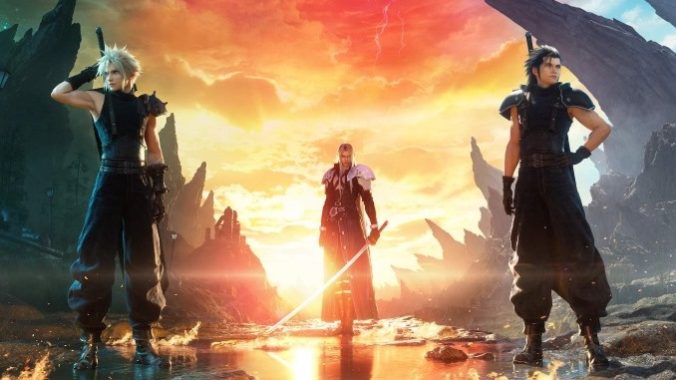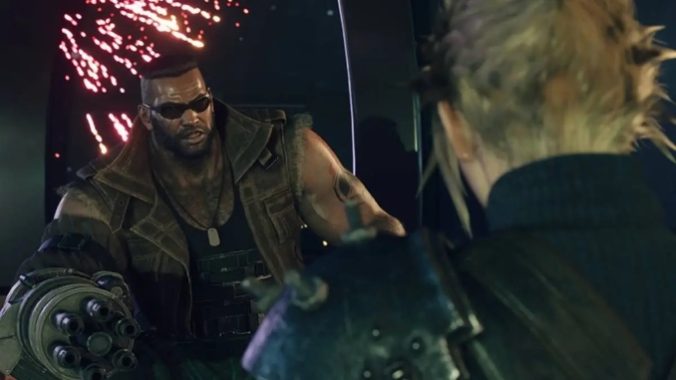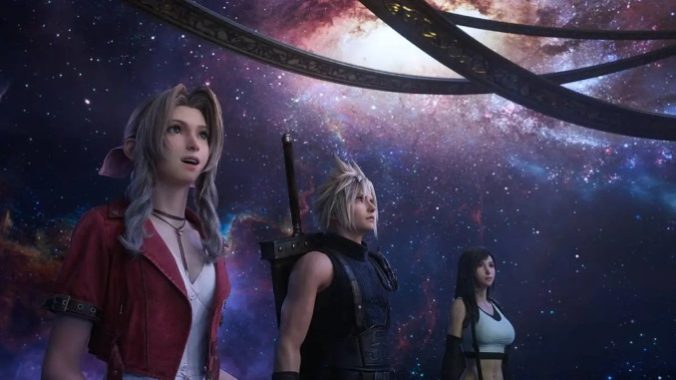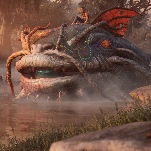Final Fantasy VII Rebirth Soars Despite Its Excesses

Final Fantasy VII Rebirth strikes me as a game that’s a little confused. On one hand, it’s a sweeping adventure in the spirit of the second act of the original Final Fantasy VII. That tremendous journey takes Cloud and his friends from the quiet town of Kalm and the sun-soaked beaches of Costa Del Sol to the peaks of Mt. Nibel, the valleys of Cosmo Canyon, and then some. Along the way, Rebirth faithfully honors numerous moments of the original game that take place in these iconic locales, all the while adding atop it and remixing things just enough to keep the most stalwart fans on their toes. It’s remarkably confident in the ways in which it blows up the world and pulls from existing threads to realize the quirks of every one of its characters and pit stops. It’s a mostly wondrous retread through one of gaming’s most iconic worlds…until it isn’t. Because on the other hand, Rebirth continues down the path that its predecessor, Final Fantasy VII Remake, laid out before it to some mixed results. Turns out that a new spin on a winning formula makes for a bit of an odd concoction.
Remake‘s whole deal was its metatextuality, specifically how in conversation it was with the original game and how it functioned as more of a quasi-sequel than a straightforward remaster or remake. Its name became quite literal as the final chapters made clear that Cloud and company were working against the fate outlined for them back in 1997 and were quite literally reforging (remake rolls off the tongue better) the events of Final Fantasy VII. This conclusion set my brain alight with the possibilities of what the next installment in the remake trilogy would be and how much more actively it could or would subvert expectations. Square-Enix has spent the past few years tamping down expectations that it will entirely zag, even outright saying at times that Rebirth would be much more faithful than Remake was to the events surrounding Midgar. Though I’m not at liberty to entirely say how, Rebirth inevitably does dovetail into the material that put Remake on the map, but it doesn’t really stick the landing. The aplomb with which Rebirth builds on most of the existing events of Final Fantasy 7‘s chronology almost suggests a level of assuredness I believed would be found across its numerous threads. However, when it matters most—and when Rebirth most tries to stand on its own—it stumbles over itself and shakes my understanding of the team’s grasp on this material. Where Remake once showed such promise, Rebirth now instills hesitance.
As I mentioned, Rebirth is far more successful when it’s playing the hits. I cannot understate the shit-eating grin I bore on my face time and time again as I revisited places and characters that I’ve grown to love over the years. Costa Del Sol’s whole deal is fan service of the highest degree, for example, but upon some reflection, it’s hard to pinpoint a part of the game that isn’t. After all, VII‘s shadow is long and immense, and why cast light on it when you can draw it out even more? And so Rebirth keeps much of the original’s weirdo second act intact, from the march in Junon to the offputting and bizarre dolphin minigame just below it. Rebirth opts for accentuating Final Fantasy VII‘s eccentricities rather than casting them off or rebuilding them in many of these instances, and by god do I love it for that. Especially coming off of the constant escalation and movement of Final Fantasy XIV‘s 10-year story that I’m still working through, as well as the overly serious and misguided attempts of Final Fantasy XVI, Rebirth‘s unadulterated spirit is a breath of fresh, untainted-by-Mako-poisoning air. It’s a game whose playfulness never fails to rear its head, whether it be in some ludicrous plot advancement, a side quest where you are forced to fight as a frog, or partaking in any one of Rebirth‘s many, many minigames.

That last bit cuts to the heart of Rebirth‘s greatest sin: it is incredibly excessive. For starters, it’s got a huge minigame problem. By my count, there are at least three shooting galleries and rhythm game sections, a playable piano, a boxing game, a space flight game, a revisit of the G-bike sequence from Remake, two different strategy games, a soccer game, the world’s best card game Queen’s Blood, a few different takes on an obstacle course and colosseums, as well as chocobo racing and flying, and I’m almost definitely missing something. At the outset, they’re a welcome distraction from the main story and a great way to break up the non-stop action of what turned out to be a 94-hour odyssey. Rebirth seeds these games throughout, occasionally turning whole chapters into occasions to fully experience all they have to offer, and tying them into what the game calls “world intel,” which are a series of objectives repeated over every one of the game’s massive zones. World intel breaks down into the same handful of goals, like analyzing crystals tied to regional summons that’ll consequently weaken them when you face the likes of familiar mugs like Phoenix and Titan to recruit them. You’ll scan lifesprings that’ll unlock the equivalent of an S-rank monster hunt for the area, corral a local chocobo that comes with its own traversal abilities, activate recon towers, and engage in protorelic hunts, which are curious questlines built around minigames like Fort Condor. But not all of these distractions are created equal.
The formulaic sequence of collecting the world intel begins as a comfort before devolving into a mind-numbing checklist. The protorelic minigames are exciting diversions at first, but grow into boring and poorly thought out executions of familiar ideas. And gimmicks become seemingly half the name of the game as they continue to break up the story in moments that don’t really call for them. This includes frequent detours that divide the party and make whole sequences out of the rest of the playable cast. Some, where you control the likes of tried-and-true characters like Barret, are better than others. Another at a particular point in the late-game is borderline sinful, and even that segment has a shoehorned gimmick that only makes it slower and grating.
-

-

-

-

-

-

-

-

-

-

-

-

-

-

-

-

-

-

-

-

-

-

-

-

-

-

-

-

-

-

-

-

-

-

-

-

-

-

-

-









































